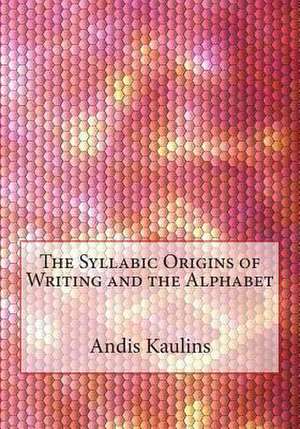The Syllabic Origins of Writing and the Alphabet
Autor Andis Kaulinsen Limba Engleză Paperback
Preț: 130.07 lei
Nou
Puncte Express: 195
Preț estimativ în valută:
24.89€ • 25.82$ • 20.75£
24.89€ • 25.82$ • 20.75£
Carte indisponibilă temporar
Doresc să fiu notificat când acest titlu va fi disponibil:
Se trimite...
Preluare comenzi: 021 569.72.76
Specificații
ISBN-13: 9781500654788
ISBN-10: 1500654787
Pagini: 138
Dimensiuni: 178 x 254 x 8 mm
Greutate: 0.25 kg
Editura: CREATESPACE
ISBN-10: 1500654787
Pagini: 138
Dimensiuni: 178 x 254 x 8 mm
Greutate: 0.25 kg
Editura: CREATESPACE
